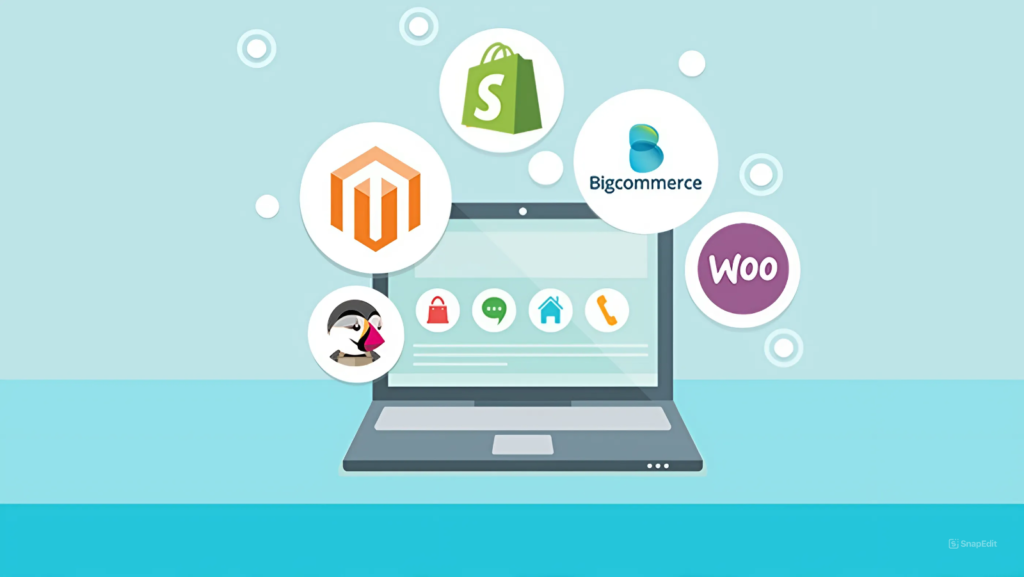Digital transformation is revolutionizing the e-commerce industry, enabling businesses to enhance customer engagement and optimize operations. By embracing innovative technologies, companies can position themselves for long-term success in an increasingly digital marketplace. This article delves into the essence of digital transformation and its importance for e-commerce businesses.
What is Digital Transformation?
In layman’s terms, digital transformation (DT or DX) means using technology to create differentiating ways of doing business to drive growth in new and existing markets.
The definition of digital transformation can be different for every organization because every business is unique. So, we have collected a spread of definitions to help you find one that applies best to your needs. Businesses often rely on web development services to achieve seamless digital transformation and modernize their processes.
What is Digital Transformation? Definition by Experts
There are a plethora of definitions of digital transformation, and here are a few:
Guru Technolabs proved this concept like ‘Digital transformation is the process of using digital technologies to change how a business operates and delivers value to its customers. It’s more than just adopting new tools or software; it’s about rethinking the way a business works from the bottom end.’
According to BigCommerce, ‘The digital transformation process is a direct result of the exponentially accelerated evolution of technology. Technology enables projects that previously took weeks to be completed in hours. Everything is moving faster and the massive amounts of data now available opens up new possibilities and changes business goals.’
Shopify indicated that ‘Digital transformation is the process of integrating digital technologies into your business, changing how your company operates and delivers value to customers. In retail, it often involves reimagining the shopping experience—from browsing to buying to customer service—using digital tools and platforms.’
Based on Gartner, ‘Digital transformation can refer to anything from IT modernization (for example, cloud computing), to digital optimization, to the invention of new digital business models.’
For many organizations, employing web development services is a practical step to build better digital interfaces and foster improved user engagement.

Go ‘digital’ or go home. What is digital transformation?
So, you’ve decided ‘to put yourself out there’? But before you move with your digital strategy, it’s important to understand what it really means and thus how to be able to benefit from it.
Digital transformation is often viewed as an implementation of digital technologies into all areas of business in order to build more sustainable relationships and better understand the needs of customers.
But this is just one of the ways to look at it. When talking about digital, we can think of discovering new frontiers and using innovation and technologies to push your business. It’s about finding new possibilities for an existing service in order to design and deliver a better experience for your customer. Some might argue it’s a new way of interacting with customers. None of these definitions is truer than the other but what we can all agree on is that today digital transformation is the force that moves businesses forward.
Why is it important to have a digital transformation strategy?
Strategy is more important than technology, according to the MIT Sloan report. And they’ve got some facts to back their opinion.
Simply going digital isn’t going to cut anymore. Only 15% of respondents from companies that are in the early stages of going digital say that their company has got a clear digital business transformation strategy. For digitally mature companies, where digital-first has helped transform business models and processes, as well as increase talent engagement, the number is more than 80%.
It seems like being a digital company is a key factor in many respects today. Potential employees name being digitally enabled company as one of the reasons to seek employment within the organization.
For organizations looking to succeed, creating a digital transformation strategy can streamline operations, engage employees, and improve customer interactions. Professional web development services play a key role in building platforms that enable the seamless integration of new technologies, ensuring a robust digital presence
And what is the state of digital, you might ask? In a race between enterprises and startups, the latter seems to be leading. 55% of startups have already adopted a digital transformation strategy, by contrast, only 38% of traditional enterprises did. But this doesn’t mean that the race is over. Among the established organizations, the wind of change is blowing heavy with 89% of companies either already adopting or planning to adopt a digital-first business strategy, with Services (95%), Financial Services (93%), and Healthcare (92%) at the forefront.
Top E-commerce Framework for Digital Transformation

Magento
Magento is a highly responsive e-commerce platform and can easily be customized in terms of design and functionality to suit your business needs. With extensive community assistance, strong features, and full control over your website, Magento leads the crowd and beats the other open-source platforms.
Shopify
Shopify e-commerce solutions are a great choice for scaling e-commerce businesses. With SEO features like the meta title and meta description, Shopify helps increase your online visibility. Depending upon the scale of your e-commerce business Shopify also offers Shopify Plus, a more advanced platform for growing businesses. With Shopify Plus, you get a dedicated store manager who helps you set up your e-store and assists with the complexities involved
WooCommerce
It is a secure and reliable e-commerce platform that offers easy shipping and payment integration services. This platform is a great choice if you are a beginner, but if you are a scaling business, you might want to consider some other option since this may slow down your e-store a little
OpenCart
Mostly preferred by startups and small e-commerce businesses, this open-source platform has everything that you need to set up your online store. This e-commerce website development framework is quite famous among e-commerce developers as it has simple features and offers easy accessibility. With strong community support and easy installation, this platform also offers a cloud version.
BigCommerce
BigCommerce is quite similar to Shopify. With many built-in features, you can easily customize your online store as per the requirement. BigCommerce provides a full-fledged e-store solution and is a lot less complex than many other e-commerce development platforms
In today’s dynamic e-commerce landscape, digital transformation is a fundamental driver of success. At Wgentech, we specialize in delivering tailored e-commerce consultations like web optimization, web design, and web development services to simplify your transition and unlock new growth opportunities. Explore how our Shopify e-commerce solutions can support your digital journey. Partner with us to build a future-ready digital business.








